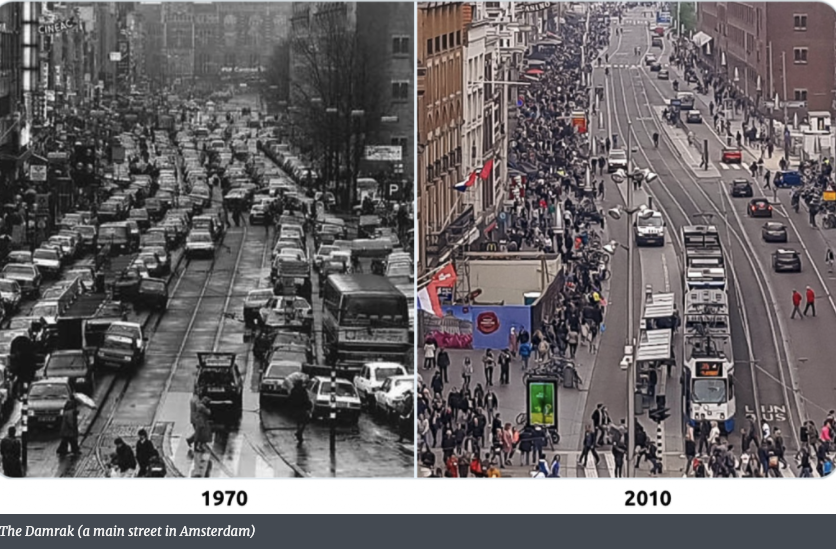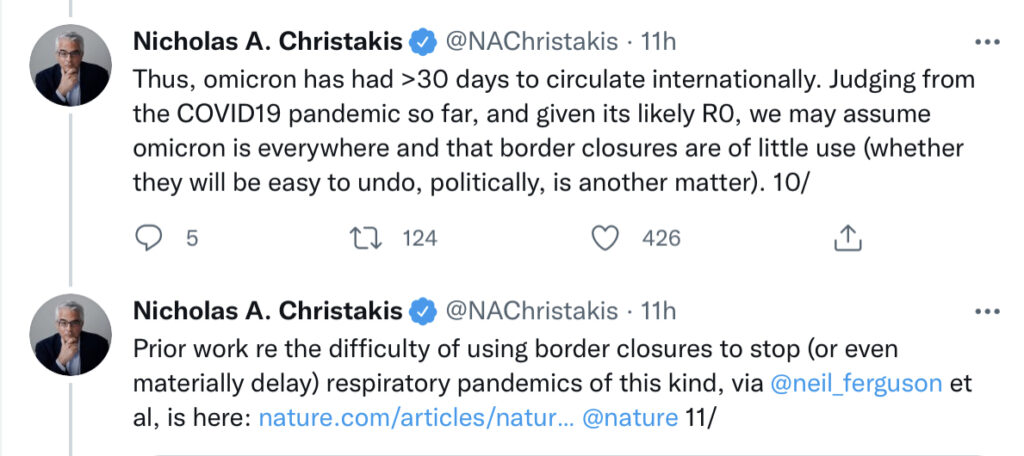Quote of the Day
”Horse sense is the good judgement that keeps horses from betting on people”.
- W.C. Fields
And, as we say in Ireland, he never spoke a truer word.
Musical alternative to the morning’s radio news
Felix Mendelssohn | Rondo Capriccioso, Op. 14 | Jan Lisiecki
Long Read of the Day
Shortage nation: why the UK is braced for a grim Christmas
By Tim Harford, written at the beginning of last month.
It wasn’t supposed to be like this. After last year’s pandemic-related shortages of masks and toilet paper and spaghetti subsided, supply chains were supposed to adapt. At first, the numbers suggested that the economy was adjusting — the UK’s second lockdown did far less economic damage than the first. We were getting through this; there was no reason to expect another winter of discontent. (It should be acknowledged that the original, in 1978-79, was rather different: a lorry drivers’ strike, a refuse collectors’ strike and even a gravediggers’ strike filled the front pages and put pressure on James Callaghan’s government. That winter has been a bruise on British politics ever since.)
So why do Britain’s shortages seem worse than ever? Is there anything we can do to ease the problem, in the UK and around the world? And — whisper it — is there a chance that all this chaos might just make us stronger?
The Popularity of E-Bikes Isn’t Slowing Down
Even the New York Times has discovered that the biggest-selling EVs have only two wheels.
There is a joke told in transit circles about people who ride electric bicycles: How do you know if someone has an e-bike? They’ll tell you. The idea, of course, is that users of the battery-powered two-wheelers tend to be proselytizers for the technology.
Yep. My wife and I bought two e-bikes nearly five years ago, and they’re among the best pieces of technology we’ve ever owned. We live about 3.5 miles from our respective places of work, and in the past we mostly used a car to do the commute. When the roads were clear that was a five-minute ride. But, given that in pre-pandemic times tens of thousands of cars tried to get into Cambridge every morning, that journey could often take up to an hour (and in one memorable case took 90 minutes).
So in the end, we saw sense and bought the bikes.
They have been transformative devices. For one thing, the journey now takes the same time every day!. For another, they’ve been good for our health. The ones we bought are power-assisted — you can switch on the motor if you need a boost, but for much of the time they are just a pair of ordinary — albeit rather heavy — bikes.
At the beginning we noticed slight disdain from ‘real’ cyclists who regarded us as engaging in what travel agents call “cycling for softies”. But when Covid came and we went into lockdown, things changed.
The weight of the bikes suddenly became a feature rather than a bug (as a programmer would put it). We live in the countryside and were therefore lucky enough to be able to cycle every day for exercise during lockdowns. So we took to travelling with the power off. This had the expected effect of making us fitter, because we had to work harder. But it also had the unanticipated effect of vastly increasing battery range. With our pre-pandemic cycling pattern the nominal range was about 25 miles . But when using the bikes just for exercise — and therefore severely limiting the amount of power-assist requested — the effective range quadrupled.
Electric cars are great, but they’re nothing like as good for the environment — or their owners’ health — as e-bikes. And they don’t wean us off cars.
How’s that for a bit of “proselytizing”?
What happens when you take cars off city streets

Fascinating before-and-after pictures from David Zetland’s blog
Omicron updates
Tweets
![]()

(via Seb Schmoller)

What we should learn from the variant
From Quartz:
The emergence of the omicron variant has led several nations to ban flights from countries in southern Africa. The knee-jerk response punishes places hard-hit by the pandemic and fails to address the real issue: If more people in poor countries were vaccinated, it would be more difficult for covid-19 to mutate and spread. Rich countries should stop hoarding vaccines. A small group of countries—the US, UK, EU, Canada, and Japan—have bought 60% of the world’s vaccines, and between a third to half are stockpiled rather than used. South Africa shouldn’t be punished for being transparent. The country’s prompt efforts to sequence and identify the new omicron variant allowed the world to react quickly—but the travel ban risks sending the wrong message on sharing data.
Noah Smith’s summing up:
Basically, the age when we could expect to stop the virus with non-pharmaceutical interventions — lockdowns, social distancing, masks, test-and-trace — is long, long over. Not only has popular appetite for this strategy waned to almost nothing, but new variants are so contagious that these strategies just aren’t sufficient to stamp out the virus. Every country except China is transitioning to a “live with Covid” strategy (and China is hurting itself by trying to maintain its “zero Covid” policy). So while you should still wear a mask, and while some cities may do some limited business closures, we should assume that distancing measures will not be our first line of defense against Omicron.
Vaccines will be our first line of defense. In the short term this means getting a booster shot of the existing vaccine, in order to restore antibody levels in time for the Omicron wave.
My commonplace booklet
- “When civilisation ends, a Xenix box will be running a long-forgotten job somewhere.” Lovely story in The Register about how our world is kept going by 50-year-old software that only boomer hackers still understand. For me, it sparks reflections about Chris Alexander’s A Pattern Language and the need for software systems to be ‘habitable’ in the long term, just like houses. And of course there’s the salutary fact that Cobol is still an integral component of some (perhaps many) banking systems.
This Blog is also available as a daily email. If you think that might suit you better, why not subscribe? One email a day, Monday through Friday, delivered to your inbox. It’s free, and you can always unsubscribe if you conclude your inbox is full enough already!
